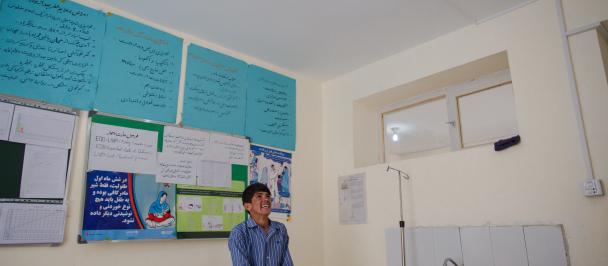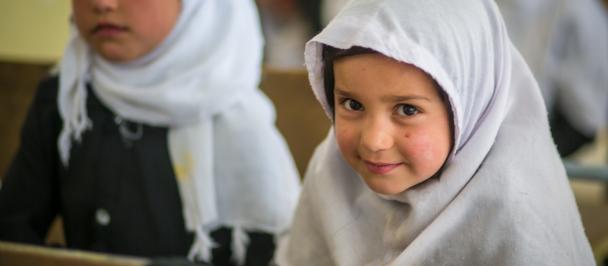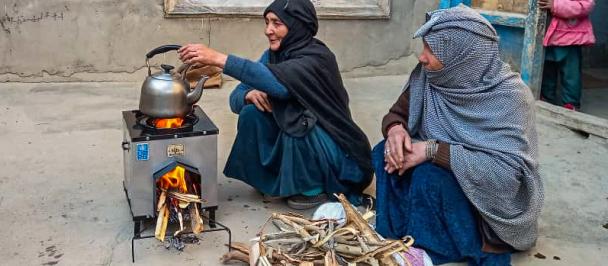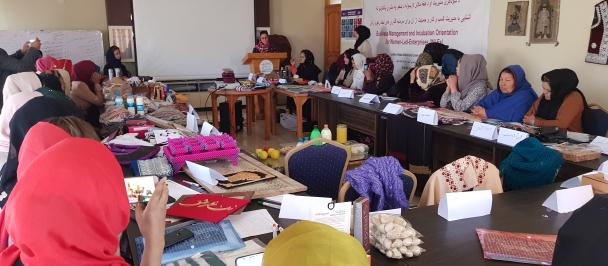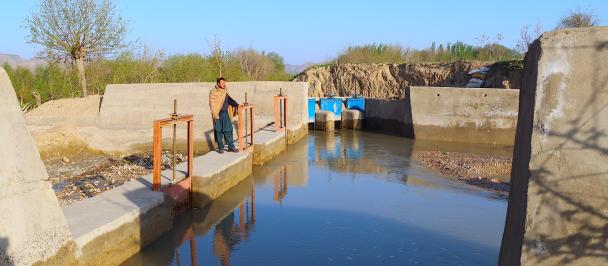The solar dryers will primarily benefit the Districts’ women, who customarily process the harvested fruits and vegetables in Afghanistan’s rural areas. © UNDP Afghanistan / ASERD / 2020
Agriculture is the main source of income for families living in the Farza and Istalif Districts of Kabul, as well as the Bagram District of Parwan. However, at harvest time, the oversupply of fresh fruits and vegetables in local markets push selling prices down.
To avoid exchanging crops for a low price, farming households dry their harvested fruits and vegetables using a time-consuming traditional method that exposes the produce to contamination by dust, insects, and extreme heat, yielding a poor-quality product.
One such entrepreneur stated, “It takes a lot of hard work to dry fruits and vegetables in the open air. Yet, when we take the dried crops to the market, they are not sold at the price we expect. Shopkeepers tell us that our produce is full of dust or has become dark under the extreme sun.”
To help improve local economic conditions, UNDP’s Afghanistan Sustainable Energy for Rural Development (ASERD) project, with the Ministry of Rural Rehabilitation and Development (MRRD), distributed 101 solar dryers throughout the Farza, Istalif, and Bagram Districts in December 2020.
While participating farmers received instruction on how to operate the machines, the solar dryers will primarily benefit the Districts’ women, who customarily process the harvested fruits and vegetables in Afghanistan’s rural areas. Training with the dryers will be available for female members of the project’s beneficiary households during the harvest season, enabling them to produce high-quality dried fruits and vegetables that can be easily stored and sold for higher prices during the non-harvest months.
© UNDP / ASERD / 2020
© UNDP / ASERD / 2020
Abdul Ghafoor, a project beneficiary and community elder, is optimistic that the new dryers will increase local incomes. “The solar dryers will save our fruits and vegetable from dust, rain and dew during the drying process,” he said. “We will be able to earn more from selling our dried agricultural products in the coming year. We thank the project for providing these solar dryers to us.”
This project was implemented through a public-private partnership with a local company manufacturing the solar dryers with locally-sourced materials. The ASERD project financed 70% of the solar dryer costs, with the beneficiaries remunerating the remaining 30% in instalments over the next year.
The ASERD project is generously funded by the Republic of Korea and provides energy services, both electrical and thermal, to rural populations across the country. The project activities have included increasing access to electricity, clean cooking, and heating options, thereby contributing to Afghanistan’s rural economic development and the tangible reduction of women and children’s deaths from indoor air pollution. Through enabling policies and regulatory frameworks focused on stakeholders’ capacity development, the ASERD project has established a sustainable rural energy supply approach that will continue to scale beyond the project period.

 Locations
Locations